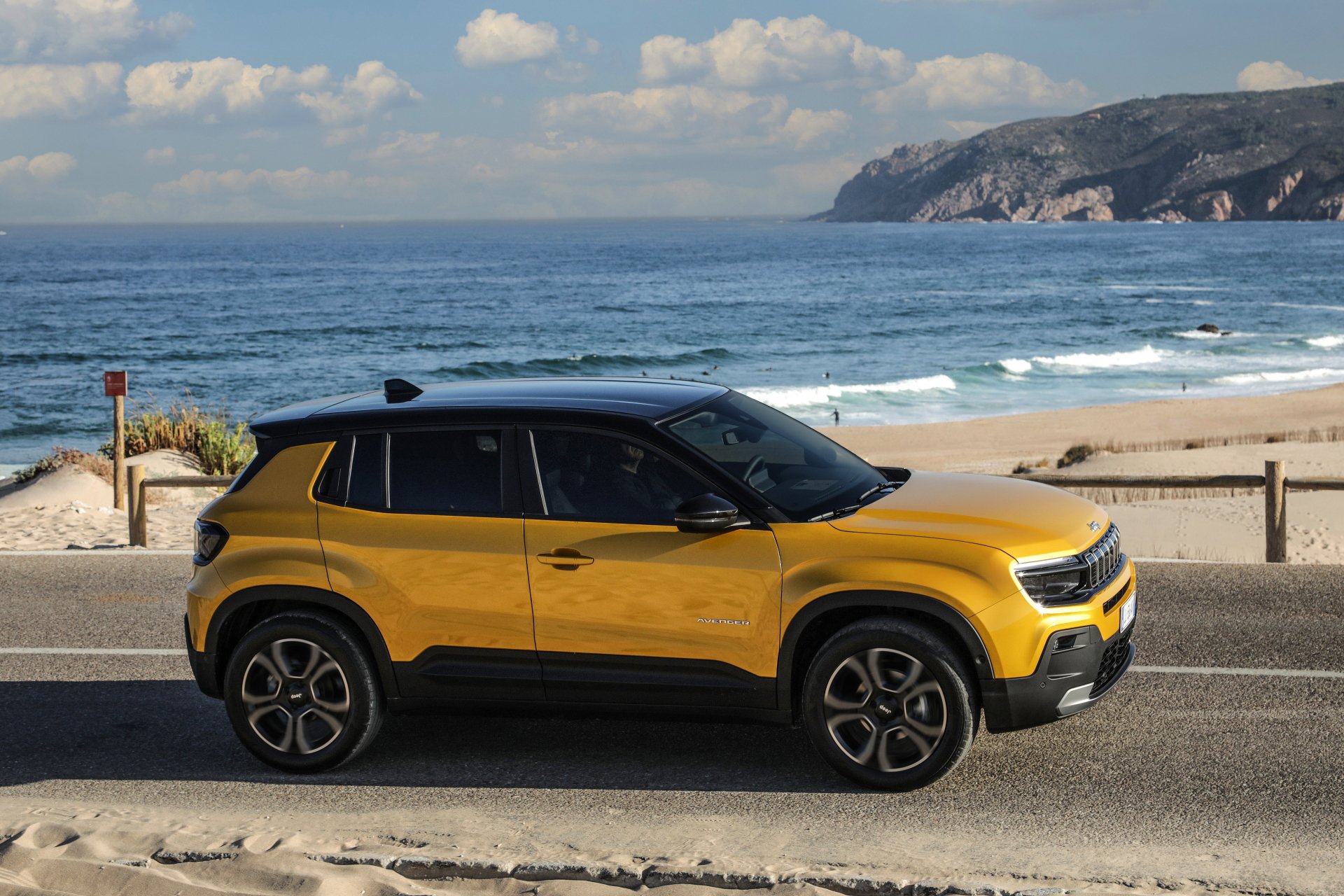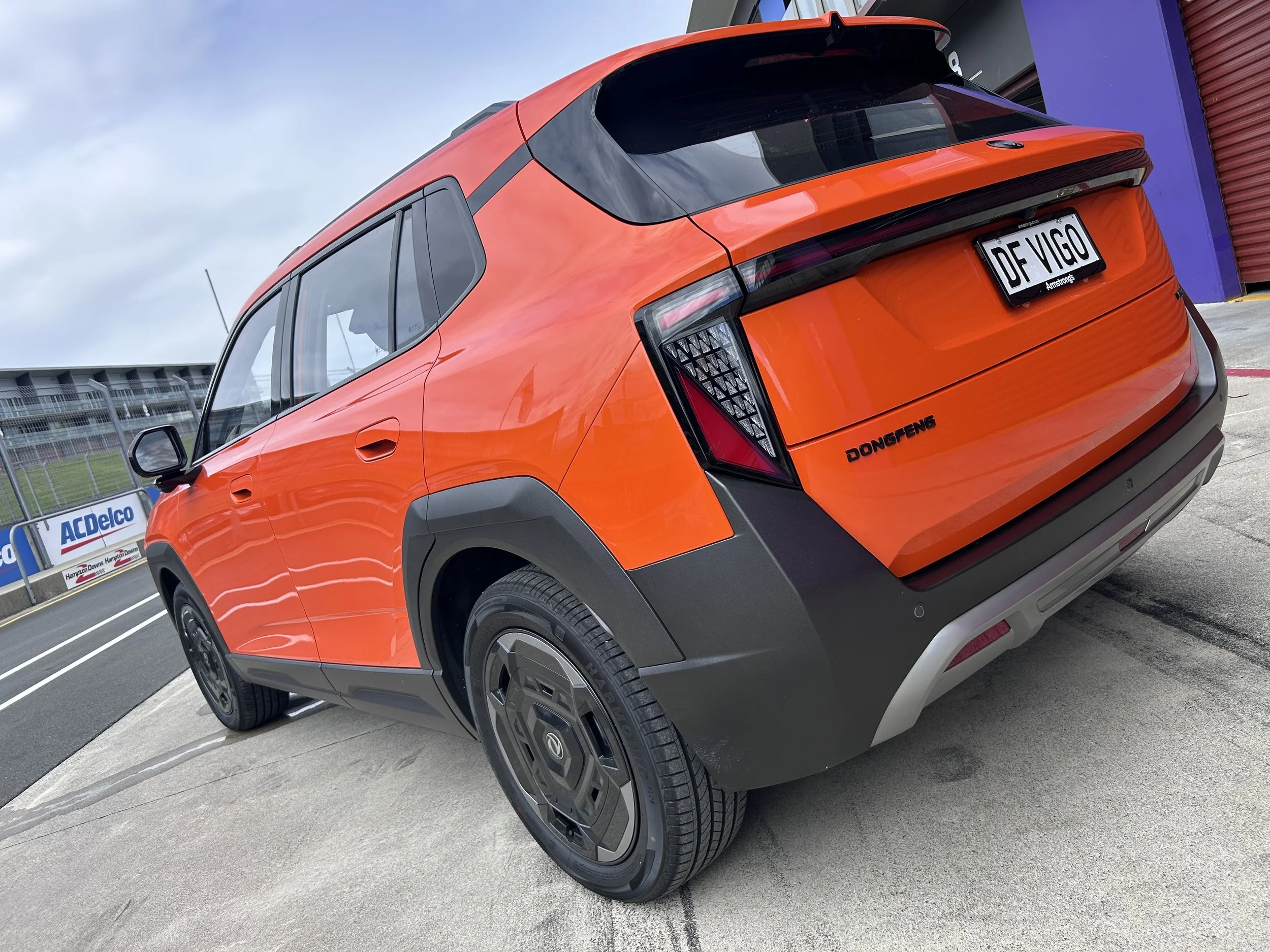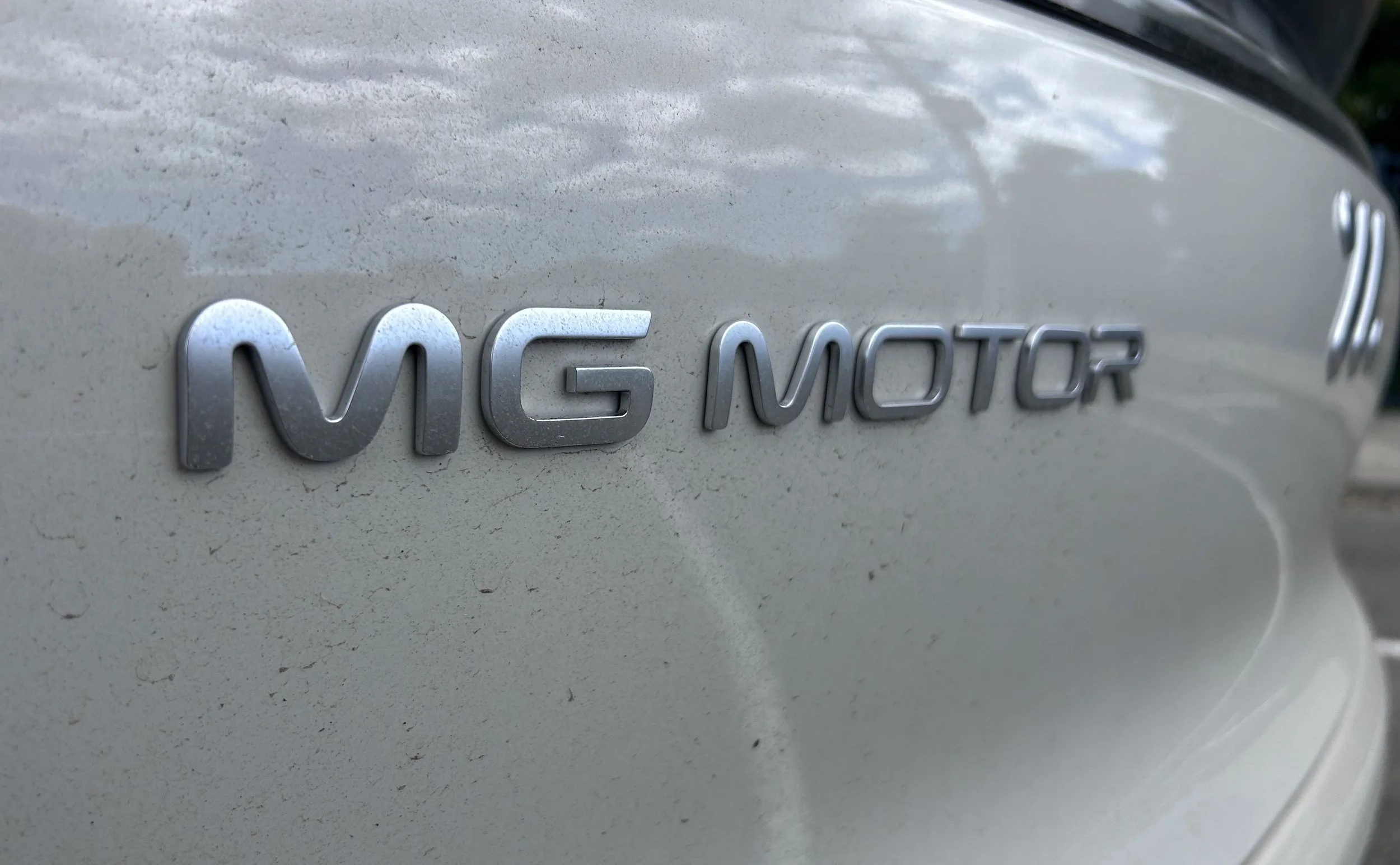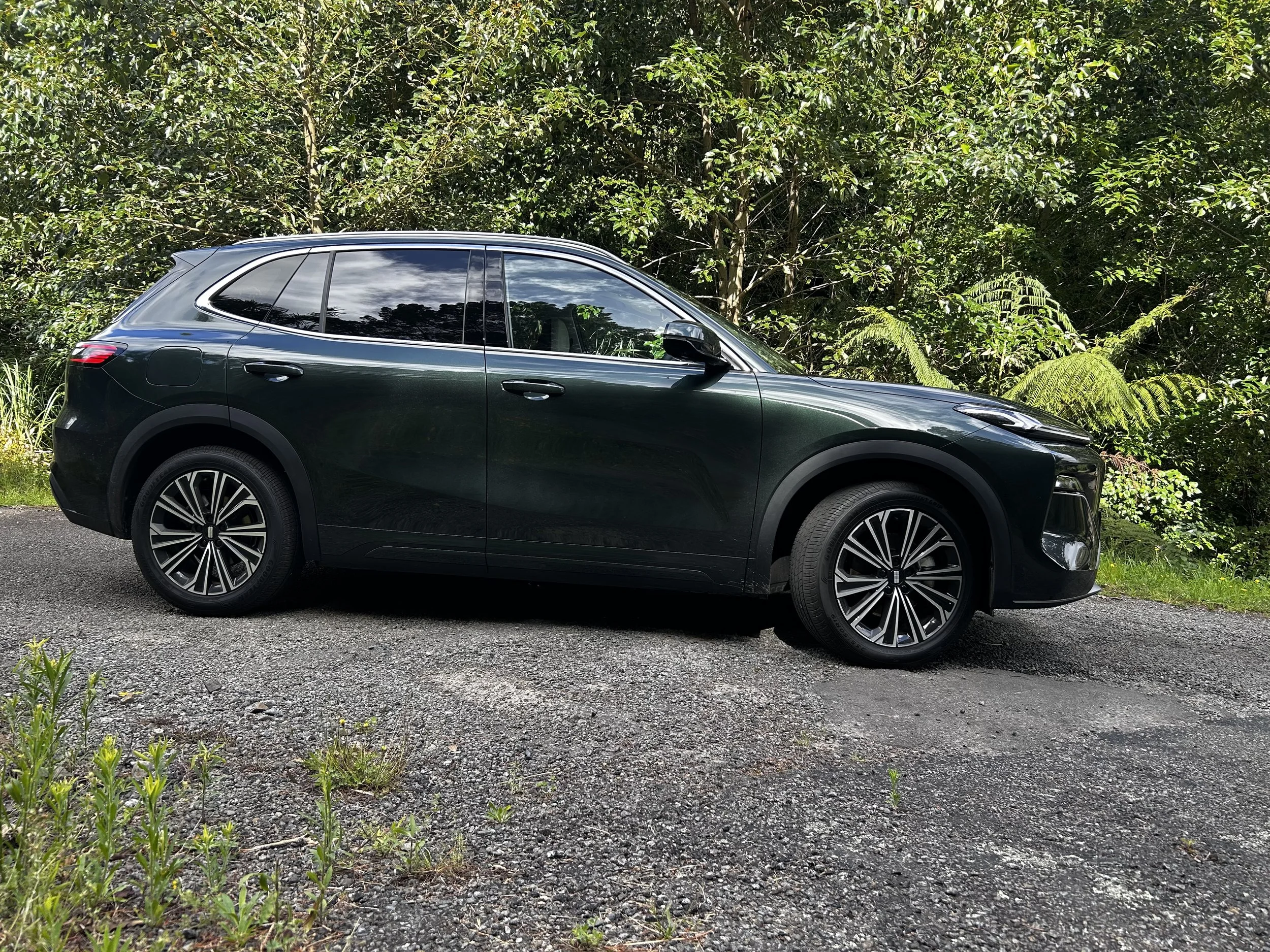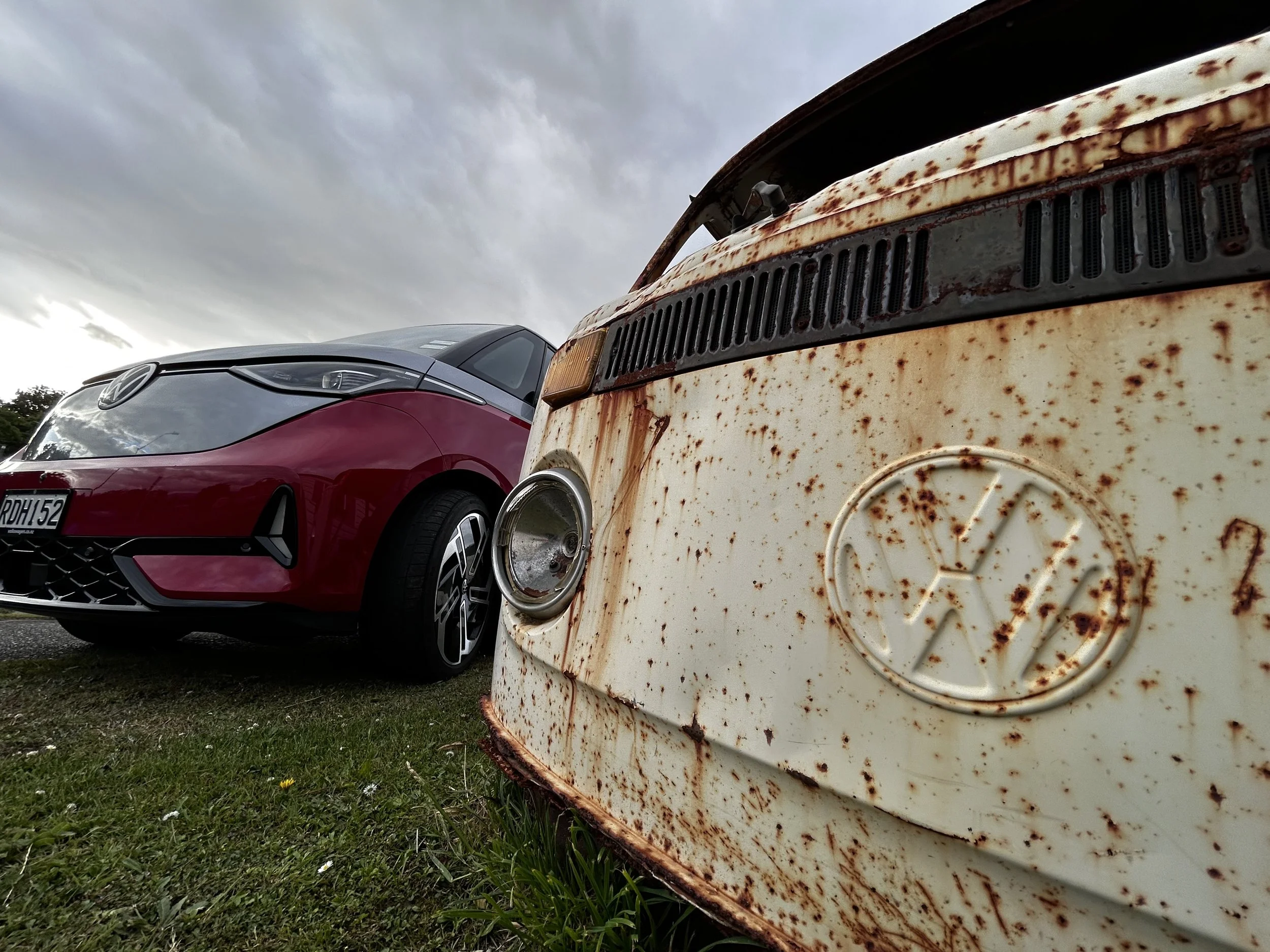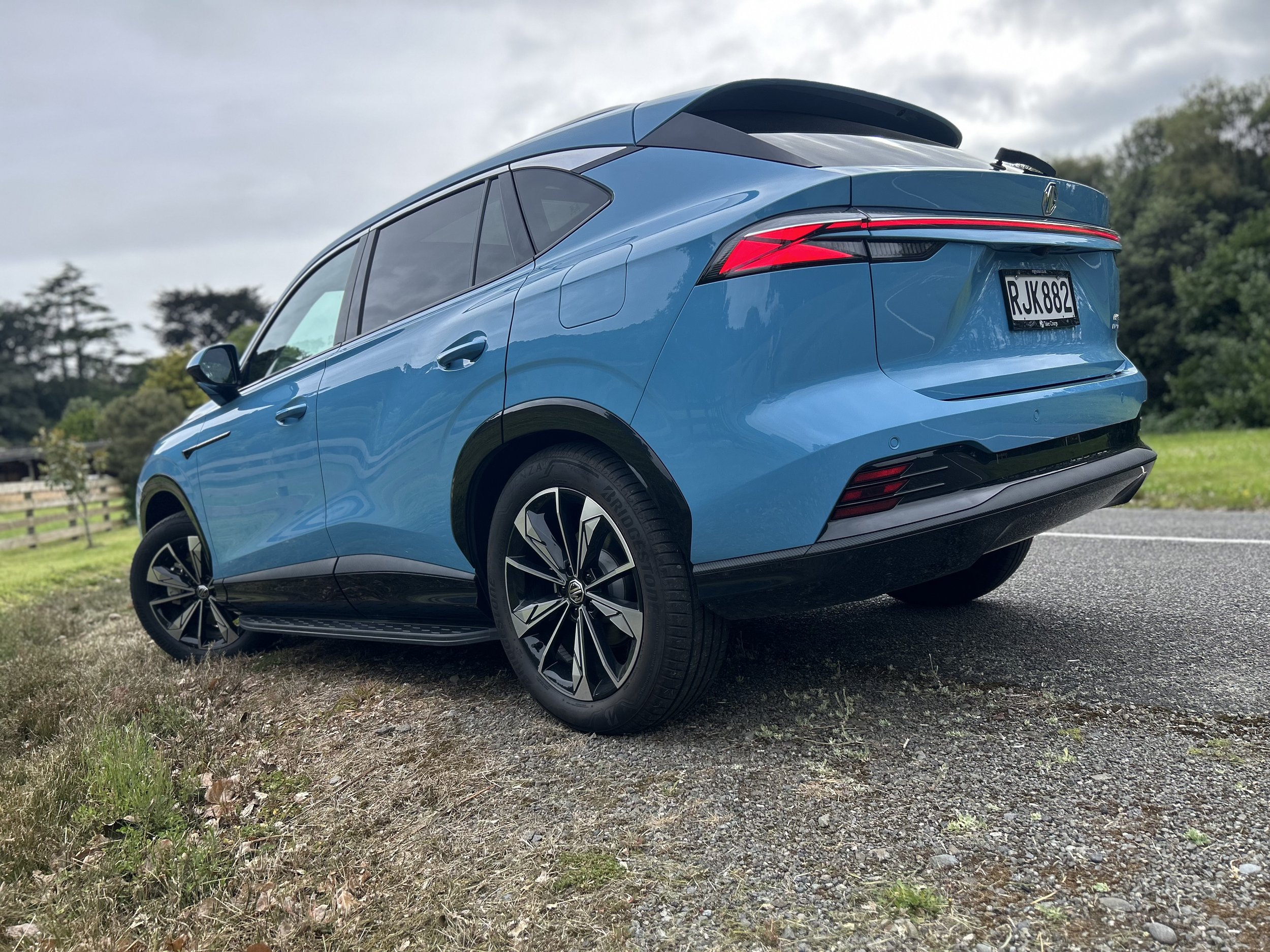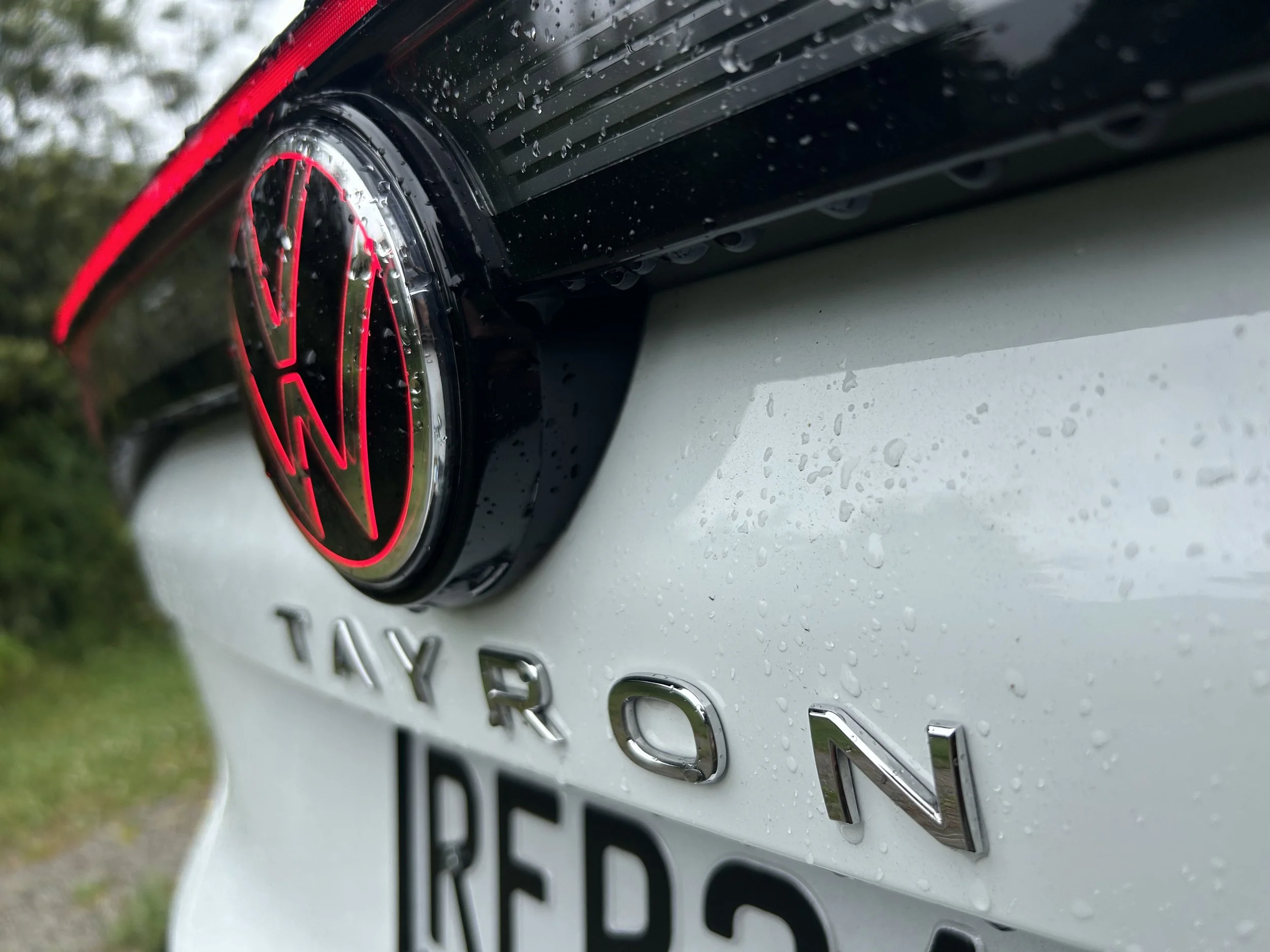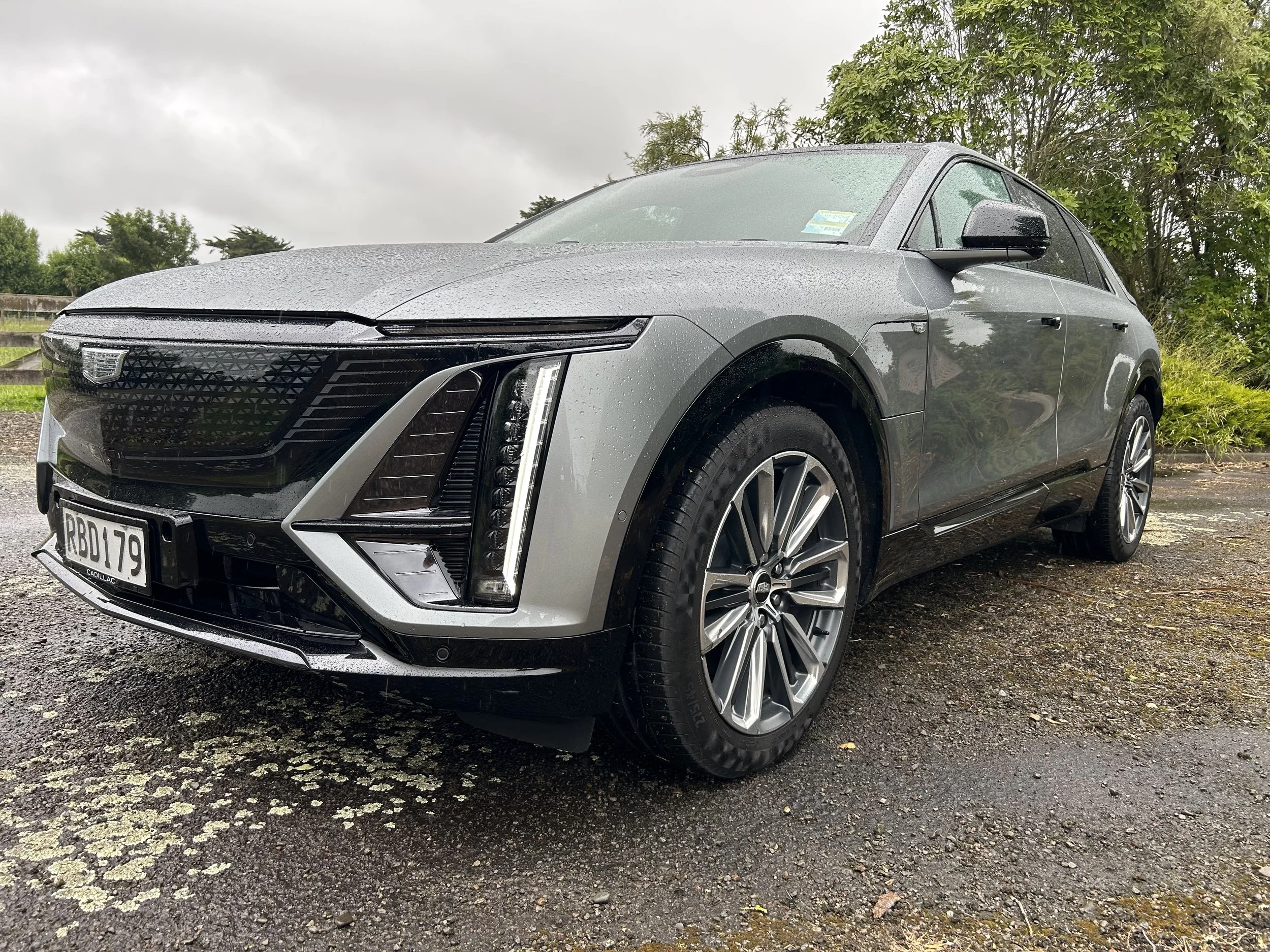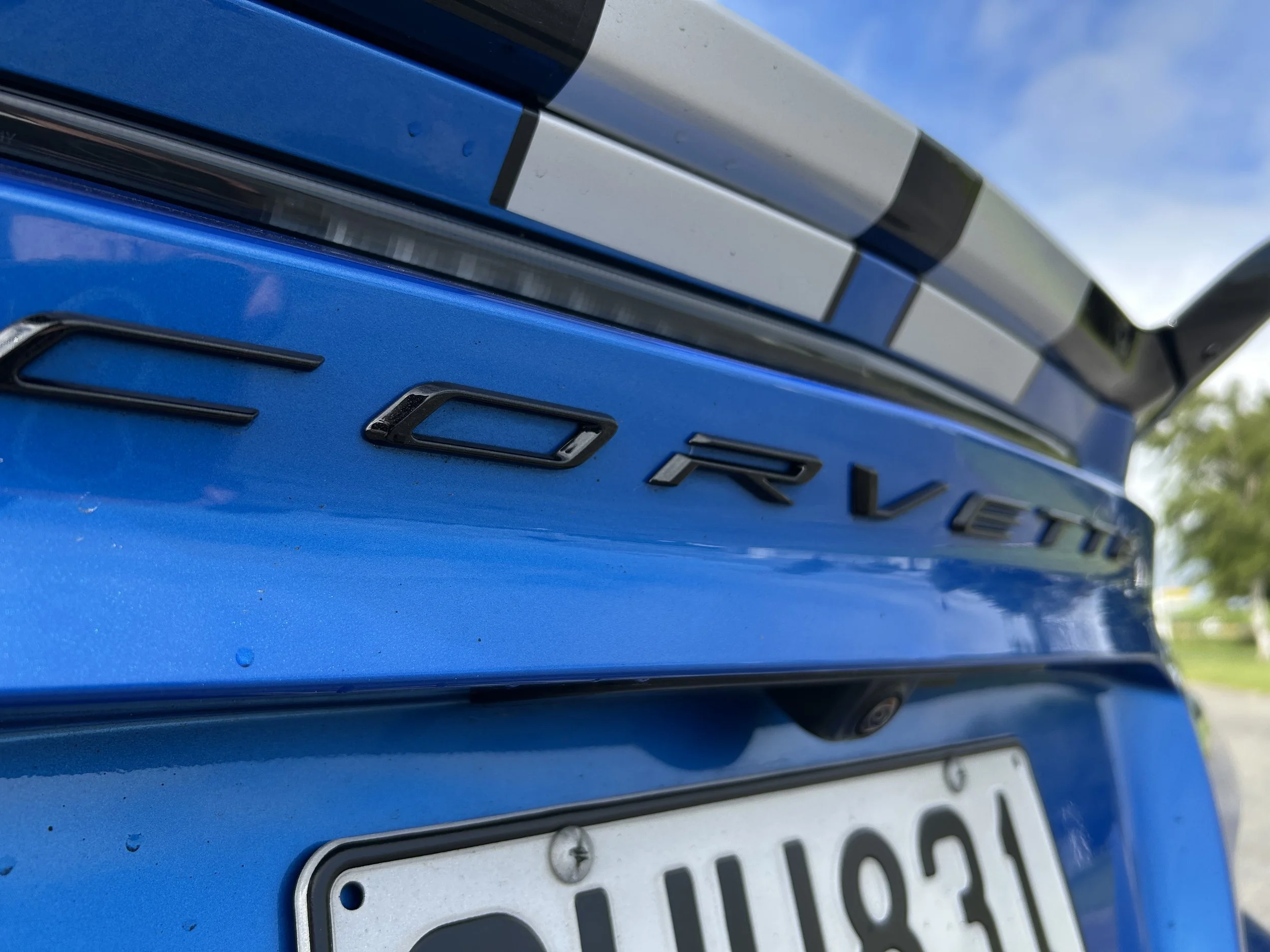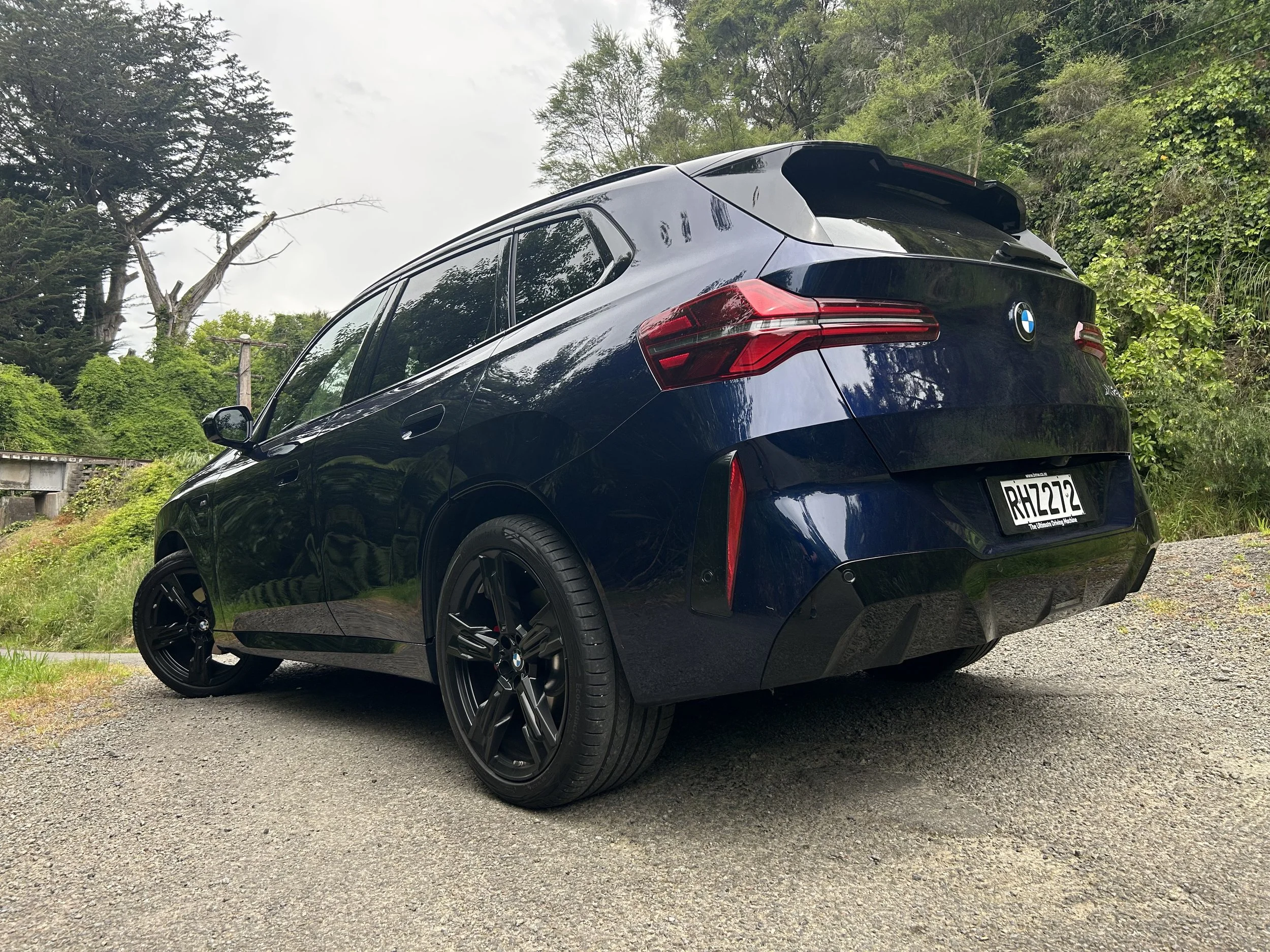Jeep plugs in, GMC drills down
/The Jeep Avenger and GMC Yukon announced for NZ provision are bonded by brand birthright but otherwise stand as exact opposites in every way.
TWO giants of the American automotive industry have taken divergent courses with latest New Zealand market announcements - one taking on electric, the other walking with dinosaurs.
Determination by Jeep here to leap into the electric sector with a small front-drive model, the Avenger (top), is a future-proofing exercise though with some concessions.
Jeep's first all-electric model has a fascinating back story - as well as being the make’s smallest current car, it’s been designed and developed in Italy and is is not intended for sale in the place of brand birthright, the United States.
The Stellantis-sourced platform means it uses front-drive running gear shared with the likes of the Peugeot E-2008 and Opel Mokka that Kiwis also can buy and Fiat’s 600e, which has yet to be locally availed.
A pre-rebate sticker of $67,005 makes Jeep’s product less of a budget buy in than those others with the 54kWh (51kWh usable) battery and 115kW/260Nm single motor when RRPs are being considered.
The Peugeot and Opel, which arrived through another distributor, are currently subject to incentives that widen the gap.
Mokka is presently $49,975 and e-2008 is $55,975, their distributor identifying them as being subject to a $20,015 saving when the $7015 Clean Car rebate is included.
The absence of AWD - which isn’t planned, according to Jeep - and no great level of ruggedness doesn’t mean the Avenger has to wholly steer clear of the wilderness duty that has become a brand credo.
While Rubicon Crossing credential is absent, the types does have All-Terrain driving modes, allowing the driver to select from Snow, Mud or Sand settings, aside from the usual Eco, Normal and Sport options. However, as all power goes to the front wheels only, the differences between the off-road modes are said to be minimal.
The national distributor’s sharing of intent to start Avenger availability here by December - which orders being taken now, initially for the First Edition type pictured with will limit to 50 examples - came on the same day that the brand’s head delivered information about a plug-in hybrid 4xe version. There is no word about whether that car is coming as well, in time.
Meantime, there’s also news from General Motors’ Speciality Vehicles.
On eve of anticipated release of more information about the potential of it selling battery-wed Cadillacs here, the provider of Corvettes and Silverados has first kept sweet with an audience who feel not need to cease interest in, let along cut back on, massive fossil fuel consumption.
It has announced intent to add another big 6.2-litre V8 rig to its arsenal of old-school iron - the Denali (above).
Ostensibly a eight-seater wagon spin from the Silverado, Denali promises to be a massive sight.
Larger than a Toyota LandCruiser 300 Series and Nissan Patrol, it positions as among the most gargantuan SUVs sold by General Motors in the United States and also the thirstiest - going by US market data, average 13.2 litres per 100km optimal seems to be claimed - with a higher CO2 count than the tray deck truck it bases on.
A project that will realise in 2025 is primarily aimed at Australia, which is where GMSV holds a regional office and converts factory-fresh Silverados to right hand drive in Melbourne - a process also planned for Denali.
However, a GMSV spokesman said the model will also be offered in NZ, despite this country being perhaps more inhospitable terrain.
The incoming, but yet-formed Government’s determination to abolish the Clean Car rebates and penalties that current reward low emission vehicles and penalise high-CO2 products - with Silverado among those coping the biggest blow - might look like a panacea. But it is isn’t.
If ‘ute tax’ disappears, distributors still have to cope with a separate CO2-containing Clean Car Standard, that hits NZ-new products on point of import and has no less stringent penalties for transgressors.
Those costs are set to ramp - so, while stiff now, will be even higher in 2025 - and distributors have long warned they were pass them on. The potential is that any of that loading will be higher than the current up-to-$7000 Clean Car impositions customers current have to contend with.
A local spokesman for GMSV, which also sells the Corvette - which is, ironically, also so to present here in electrified E-Ray form, also factory-furnished in RHD, to sit alongside the few V8 petrol Singrays that have reached here - did not offer comment on this.
When asked the market potential for the lumbering Denali, which in North America represents as a GMC product but could yet be badged as a Chevrolet (though, in the US, that’s a Tahoe), he was also circumspect.
GMSV did not offer volume predictions, he relayed, and when it came to potential consumer interest, the case for introduction fell on anticipation “…there will demand …among people who desire a large and spacious SUV with seating for up to eight people.”
logically, that argument was also put for the last full-size General Motors SUV tried in this part of the world, the Chevrolet-based Holden Suburban – half a size larger than the 5.3-metre Yukon/Tahoe – which was discontinued in 2000 due to desultory interest; this in a period when fuel prices and sentiment about heavyweight ‘gas gulpers’ was far friendlier.
Assumption is that the Denali out of Melbourne will runs the same V8 as Silverado, in identical 313kW and 624Nm tune, matched with a 10-speed automatic transmission and four-wheel drive. Towing capacity in the US is rated at up to 3810kg.
Available features in the US include a 10.2-inch touchscreen with wireless Apple CarPlay and Android Auto, a 12-inch digital instrument cluster, head-up display, 18-speaker Bose sound system, and a suite of advanced safety features.
In the US the Yukon offers GM's Super Cruise semi-autonomous driving technology – which operates on approved highways in the US and Canada – but it is unclear if that tech can or will apply here.
Avenger, meantime, is the first in a wave of new electric models from Jeep. Also close are an all-electric Wagoneer SUV and Recon electric 4x4, with more new models in the pipeline for 2025 and beyond.
Once the First Editions are cleared, it seems likely Jeep here will settle into the regular production models - badged Altitude, Longitude and Summit in other right hand drive markets.
Jeep claims a range of up to 400km and says recharging from 20 to 80 percent takes 24 minutes when using a 100kW fast charger, or 5.5 hours from dead to full with an 11kW alternating current charger. Like others on this platform, it holds a five star Euro NCAP score.
Jeep NZ’s battery charge began some months ago with arrival of three plug-in hybrids - the $69,990 Renegade 4XE, $77,490 Compass 4XE and $154,990 Grand Cherokee 4XE.


